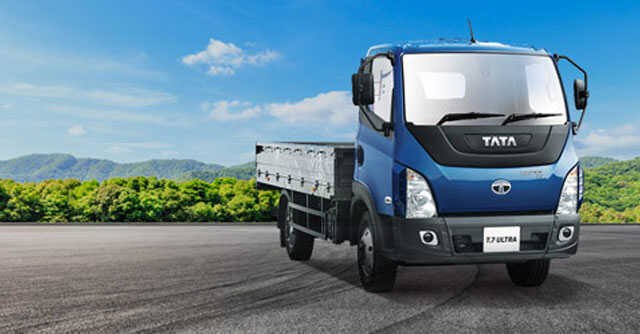
Hydrogen-IC engine may be key to India’s net-zero goals


India’s commercial vehicle industry is gearing up to embrace multiple low or zero-emissions technology solutions in India’s pursuit of its clean energy commitments, investing in products with hydrogen fuel-cells, hydrogen-powered internal combustion engines (hydrogen ICE) and battery electric vehicles to address different commercial applications and mobility needs.
A technology that stands out is hydrogen-ICE, that is, internal combustion engines which consume hydrogen, a clean and carbon-free fuel to run and can become more accessible and technologically and economically feasible stepping-stones, if not full-fledged solutions, to hydrogen fuel cells to power heavy commercial vehicles and inter-city and inter-state buses. As hydrogen storage and the availability and high cost of green hydrogen limit its benefits for short-haul applications, the industry sees battery electric vehicles or CNG-powered light commercial vehicles as a better alternative.
“Hydrogen IC-engine vehicles are emerging as a promising new technology and has some key advantages over hydrogen fuel cell EVs: they are more tolerant to impurities in hydrogen, but more importantly, they can draw from a lot of the infra and the platforms in use currently for IC-engines, compared to fuel cell EVs which are a completely new technology”, Girish Wagh, Executive Director, Tata Motors, told Mint. Tata Motors will develop this and its other alternative fuel technologies with Cummins, a power solutions technology provider.

“Our MoU with Cummins for diesel engines new technologies like hydrogen fuel cells, hydrogen IC-engines and BEVs”, Wagh said. Cummins showcased its hydrogen internal combustion engine, the B6.7H for medium and heavy-duty trucks at the Auto Expo on Wednesday.
Tata Motors’ commercial vehicle business has also committed to a net-zero emissions target by 2045. “If we have to achieve net-zero emissions as a country by 2070, it means no vehicle can be made or sold unless it is zero-carbon emissions, which means we will have to stop selling any vehicles that pollute by 2055, assuming a 15-year lifecycle for a vehicle. We will stop selling any carbon-emitting vehicles by 2045, and our journey to 2045 will be shaped by a multitude of vehicles depending on factors like energy security, our import substitution goals and reduction in emissions”, Wagh told Mint.
Tata Motors displayed 4 clean propulsion technologies in long-haul trucking integrated in the Prima range: Hydrogen ICE, Hydrogen Fuel Cell EV, Battery EV & LNG. It also showcased the Starbus fuel cell EV concept, India’s first Hydrogen fuel cell bus for commercial application.

Ashok Leyland too showcased an LNG Truck, a fuel cell electric truck and a hydrogen-ICE vehicle during the motor show.
“The range of our new clean-energy products, covering both the truck and bus segments, underscores our capability and readiness to lead the transformation in the road transportation sector. We will remain deeply invested in the cause of sustainability, aspiring to lead the market with our new-generation commercial vehicles.” Dheeraj Hinduja, Executive Chairman, Ashok Leyland, said. The company’s net-zero emissions pure-electric commercial vehicle maker Switch Mobility, also showcased an electric light commercial vehicle and electric mini-bus, the EiV during the Expo.
